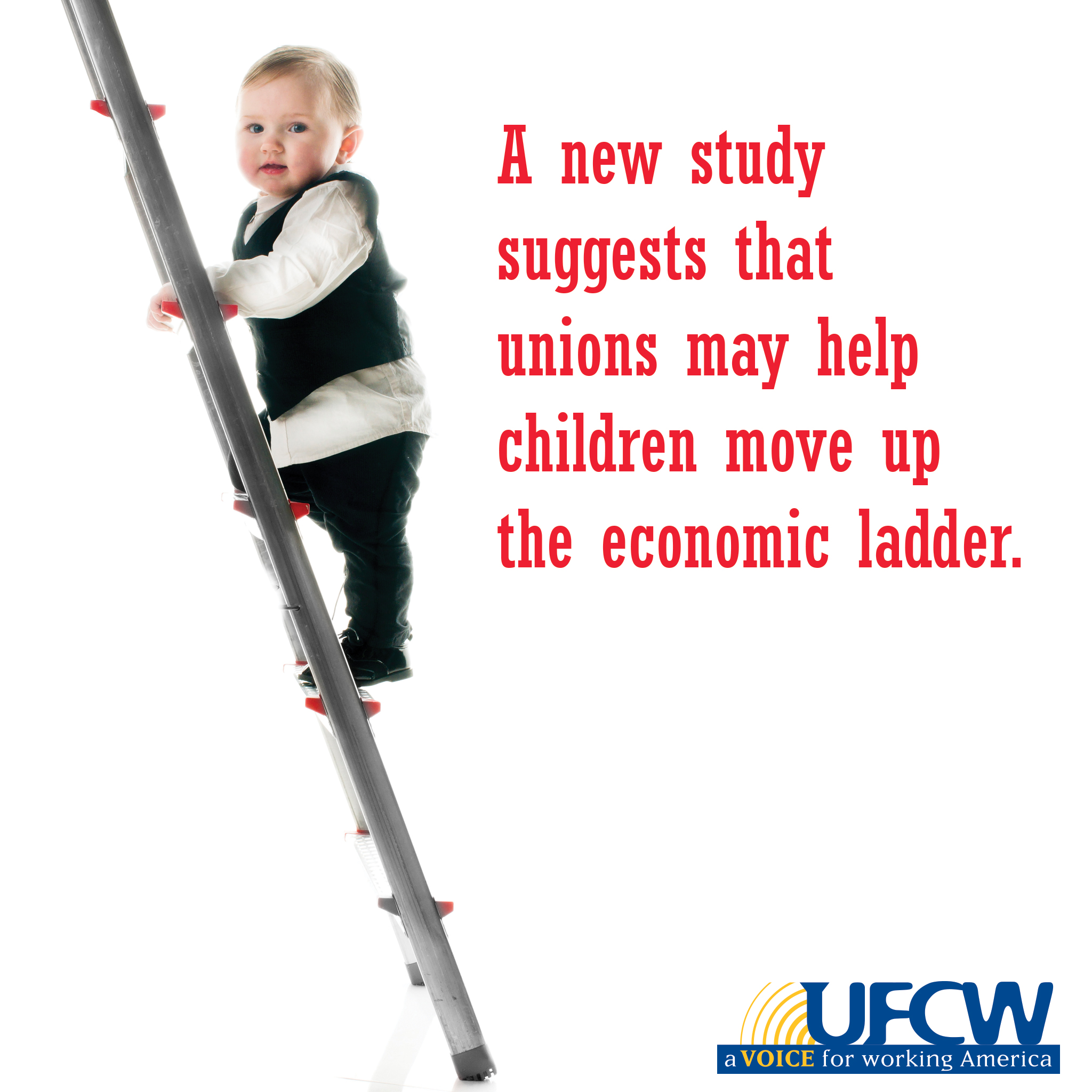A new study shows yet another benefit of unions you may not be aware of: The New York Times this week wrote about a study that “suggests that unions may also help children move up the economic ladder.”
The paper–written by researchers at Harvard, Wellesley and the Center for American Progress–essentially finds that children born into low-income families have a greater chance of ascending “to higher incomes in metropolitan areas where union membership is higher.”
The Times article points out that it seems that no other link to upward mobility is as strong as the one found in the study. It’s also another reason why the decline in union membership is so troubling.
Beyond the effect of unionization on parents’ wages, the researchers found that this trend is also attributed to the fact that “unions are effective at pushing the political system to deliver policies — like a higher minimum wage and greater spending on schools and other government programs — that broadly benefit workers.” Perhaps the best and most recent examples of this are seen in San Francisco, Seattle, and New York, where the minimum wage has been raised significantly.
And the correlation between increased union membership and increased income earning percentile for children doesn’t just apply to children in the lowest percentile, but children of all households.
Interestingly, the study also found that “children with fathers who belong to a union have significantly higher wages than children who don’t. But when it’s the mother who belongs to a union, only the wages of daughters rise.”
When trying to determine why, the Times notes that “it’s possible that the explanation is sociological: Daughters with a mother who belongs to a union may be more likely to work themselves, which means they’re more likely to have higher wages. Or, put differently, union membership is helping to change social norms.”
What norms are unions changing exactly? “Giving workers a greater sense of agency.” That sense, that union workers have the power to speak out if they are mistreated, then spreads to their peers.
Richard B. Freeman, one of the study’s authors, summarizes the takeaway nicely: “things that have a small effect at the individual level can have a larger aggregate effect.”

